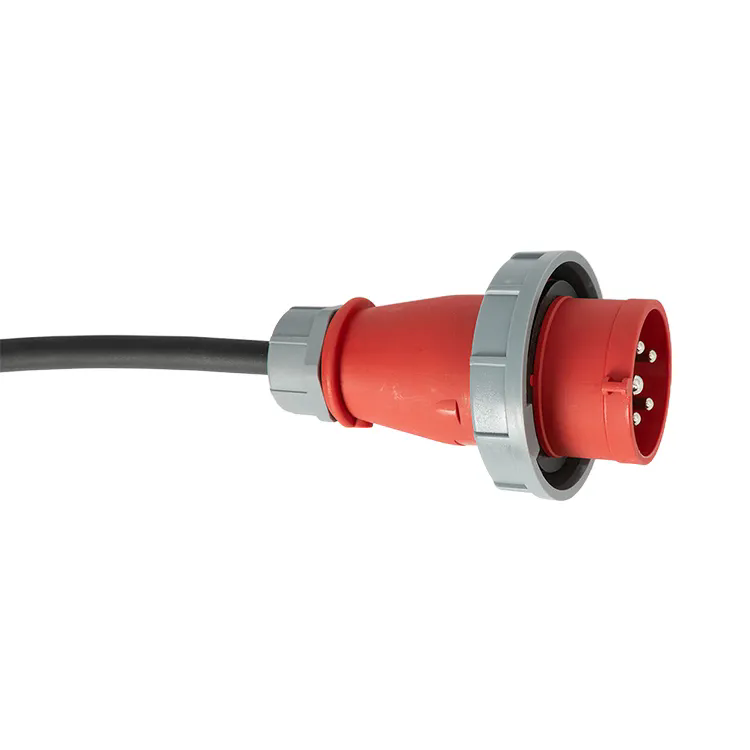The Essential Role of Industrial Connectors in Modern Manufacturing
2024-08-15
In the world of industrial manufacturing, connectivity is key. Industrial connectors play a crucial role in ensuring the reliable transmission of power, signals, and data across various systems and equipment. These components are the unsung heroes of the industrial sector, enabling seamless communication and functionality in complex machinery and automation systems. In this blog, we'll explore the significance of industrial connectors, their types, applications, and why they are indispensable in modern manufacturing environments.
1. What Are Industrial Connectors?
Industrial connectors are specialized components designed to establish electrical or data connections between different pieces of industrial equipment. They are engineered to withstand harsh environments, including extreme temperatures, vibrations, moisture, and dust. Industrial connectors come in various shapes, sizes, and configurations to meet the diverse needs of industrial applications.
2. Types of Industrial Connectors
Industrial connectors come in many types, each designed for specific purposes and environments. Here are some of the most common types:
- Circular Connectors: These connectors feature a circular design and are often used in applications requiring robust and reliable connections. They are available in various pin configurations and sizes, making them suitable for power, signal, and data transmission.
- Rectangular Connectors: Known for their rectangular shape, these connectors are commonly used in applications where space constraints are less of an issue. They are often used for data and signal connections in control panels and machinery.
- Fieldbus Connectors: Designed for industrial communication networks, fieldbus connectors facilitate data exchange between devices in automated systems. They support various communication protocols, such as Profibus, DeviceNet, and Ethernet/IP.
- Modular Connectors: These connectors offer flexibility by allowing users to customize the number and type of contacts. They are often used in applications requiring a combination of power, signal, and data connections.
- Power Connectors: Specifically designed to handle high current and voltage, power connectors ensure the safe and efficient transfer of electrical power to industrial equipment. They are used in applications such as motors, transformers, and power supplies.
- Sensor Connectors: These connectors are designed for connecting sensors and actuators in automation systems. They are optimized for reliable signal transmission and resistance to environmental factors.
3. Key Features of Industrial Connectors
Industrial connectors are designed with several key features to meet the demands of industrial environments:
- Durability: Industrial connectors are built to withstand harsh conditions, including extreme temperatures, vibrations, shocks, and exposure to chemicals and moisture. Their rugged construction ensures long-term reliability and performance.
- High Performance: These connectors are engineered for high-performance applications, providing stable and reliable connections for power, signals, and data. They are designed to minimize signal loss and interference.
- Ease of Use: Many industrial connectors feature user-friendly designs that facilitate easy installation and maintenance. Quick-connect and snap-lock mechanisms are common features that simplify the connection process.
- Safety: Industrial connectors are designed with safety in mind, incorporating features such as insulated contacts and secure locking mechanisms to prevent accidental disconnections and ensure safe operation.
- Compatibility: Industrial connectors are available in various standards and configurations to ensure compatibility with different types of equipment and systems. This versatility allows for seamless integration in diverse applications.
4. Applications of Industrial Connectors
Industrial connectors are used across a wide range of applications, including:
- Manufacturing Automation: In manufacturing automation systems, industrial connectors facilitate the connection of sensors, actuators, and control units. They enable precise control and monitoring of machinery and production processes.
- Energy and Power Generation: Industrial connectors are used in power generation and distribution systems to connect generators, transformers, and circuit breakers. They ensure reliable power transfer and operational efficiency.
- Transportation and Aerospace: In the transportation and aerospace industries, industrial connectors are used in various systems, including avionics, navigation, and communication systems. They provide robust and reliable connections in demanding environments.
- Marine and Offshore: Industrial connectors are crucial in marine and offshore applications, where equipment is exposed to harsh marine conditions. They are used in navigation systems, communication equipment, and power distribution.
- Telecommunications: In telecommunications networks, industrial connectors are used to connect communication equipment, such as routers, switches, and servers. They ensure stable and high-speed data transmission.
- Medical Equipment: Industrial connectors are used in medical devices and equipment for reliable connections in diagnostic, therapeutic, and monitoring applications. They are designed to meet stringent safety and performance standards.
5. Choosing the Right Industrial Connector
When selecting an industrial connector, consider the following factors:
- Application Requirements: Evaluate the specific requirements of your application, including environmental conditions, power levels, and data transmission needs. Choose a connector that meets these requirements.
- Durability and Reliability: Ensure that the connector is built to withstand the environmental factors and stresses of your application. Look for features such as rugged construction and protective coatings.
- Compatibility: Verify that the connector is compatible with your equipment and systems. Consider factors such as pin configuration, mounting options, and standards.
- Ease of Installation: Choose a connector that offers ease of installation and maintenance. Features such as quick-connect mechanisms and clear labeling can simplify the process.
- Cost and Budget: Evaluate the cost of the connector in relation to your budget. Consider factors such as durability, performance, and long-term value when making your decision.
6. Future Trends in Industrial Connectors
As technology advances, industrial connectors are expected to see several trends and innovations:
- Increased Miniaturization: The trend towards smaller and more compact connectors will continue, driven by the need for space-saving solutions in modern equipment and systems.
- Enhanced Connectivity: Advances in connectivity technologies, such as IoT and wireless communication, will influence the development of new types of connectors and integration solutions.
- Improved Durability: Ongoing improvements in materials and design will lead to even more durable connectors capable of withstanding extreme conditions and providing reliable performance.
- Smart Connectors: The integration of smart technologies, such as sensors and diagnostic capabilities, may lead to the development of intelligent connectors that provide real-time monitoring and data.
In conclusion, industrial connectors are essential components that play a vital role in ensuring the reliable operation of industrial systems and equipment. By understanding their features, benefits, and applications, manufacturers and engineers can make informed decisions and select the right connectors for their needs. As technology continues to evolve, industrial connectors will remain a key element in driving innovation and enhancing connectivity in the industrial sector.



